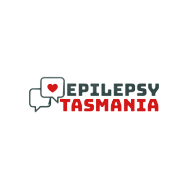Attention deficit hyperactivity disorder (ADHD) is often associated with children, but it is a condition that can persist into adulthood. In fact, it is estimated that around 4% of adults in the United States have ADHD. However, many adults with ADHD may not realize they have the condition or may have been misdiagnosed earlier in life. Understanding ADHD in adults is crucial for proper diagnosis and treatment. This article will explore the symptoms, causes, and diagnosis of ADHD in adults, as well as effective treatment options, including medication, therapy, and lifestyle changes. Additionally, it will provide strategies for coping with adult ADHD, building support systems, and practicing self-care. Whether you suspect you may have ADHD or know someone who does, this article aims to provide comprehensive information and guidance for living with and managing ADHD in adulthood.
1. Understanding ADHD in Adults: Symptoms, Causes, and Diagnosis
Attention deficit hyperactivity disorder (ADHD) is often associated with children, but it is a condition that can persist into adulthood. In fact, studies suggest that approximately 60% of children with ADHD continue to experience symptoms as adults. However, ADHD in adults often goes undiagnosed and untreated, leading to significant challenges in various aspects of their lives.
Symptoms of ADHD in adults differ from those in children, making it more challenging to recognize the condition. While children with ADHD are typically hyperactive and impulsive, adults may exhibit more subtle symptoms such as difficulty with organization, time management, and maintaining focus. They may struggle with completing tasks, listening attentively, and maintaining relationships.
The causes of ADHD in adults are not yet fully understood. Research suggests that genetics play a significant role, with studies showing that adults with ADHD often have a family history of the condition. Environmental factors, such as exposure to toxins during pregnancy or early childhood, may also contribute to the development of ADHD.
Diagnosing ADHD in adults can be complex due to the overlapping symptoms with other mental health conditions, such as anxiety and depression. It requires a comprehensive evaluation by a healthcare professional, including a thorough medical history, assessment of symptoms, and feedback from family members or close associates. The Diagnostic and Statistical Manual of Mental Disorders (DSM-5) provides specific criteria for diagnosing ADHD in adults, including the presence of symptoms since childhood, impairment in at least two settings (work, home, or social), and evidence of significant impairment in daily functioning.
Treatment options for ADHD in adults typically involve a combination of medication, therapy, and lifestyle changes. Stimulant medications, such as methylphenidate and amphetamines, are commonly prescribed to manage symptoms of ADHD. These medications help improve focus, attention, and impulse control. Non-stimulant medications, such as atomoxetine and bupropion, may also be considered. Additionally, therapy, such as cognitive-behavioral therapy (CBT), can help individuals develop coping strategies and improve their organizational and time management skills.
In addition to medication and therapy, lifestyle changes can significantly impact the management of ADHD symptoms. Regular exercise, a balanced diet, adequate sleep, and stress reduction techniques, such as mindfulness or meditation, can all contribute to better symptom control. Creating a structured and organized environment, setting realistic goals, and utilizing tools like planners or reminders can also be helpful.
In conclusion, understanding ADHD in adults is crucial to provide appropriate diagnosis, treatment, and support. Recognizing the unique symptoms, exploring potential causes, and conducting a comprehensive evaluation are essential steps in diagnosing ADHD in adults. A combination of medication, therapy, and lifestyle changes can significantly improve the quality of life for individuals with ADHD, allowing them to better manage their symptoms and thrive in various aspects of their lives.
2. Effective Treatment Options for Adult ADHD: Medication, Therapy, and Lifestyle Changes
Effective Treatment Options for Adult ADHD: Medication, Therapy, and Lifestyle Changes
When it comes to managing attention deficit hyperactivity disorder (ADHD) in adults, there are several effective treatment options available. These options typically involve a combination of medication, therapy, and lifestyle changes to address the underlying symptoms and improve daily functioning.
1. Medication: Medication is often a crucial component in treating adult ADHD. Stimulant medications such as methylphenidate and amphetamine salts are commonly prescribed to help regulate brain chemicals involved in attention and impulse control. Non-stimulant medications like atomoxetine may also be prescribed for those who cannot tolerate stimulant medications. These medications work by increasing the levels of certain neurotransmitters, improving focus, impulse control, and reducing hyperactivity. However, it is important to work closely with a healthcare professional to determine the most suitable medication and dosage.
2. Therapy: Various types of therapy can be beneficial for adults with ADHD. Cognitive-behavioral therapy (CBT) is commonly used to help individuals develop strategies to manage their symptoms, improve time management, organization, and decision-making skills. CBT also helps individuals identify negative thought patterns and replace them with more positive and realistic thinking. Additionally, psychoeducation can play a significant role in helping individuals understand ADHD and its impact on their lives, empowering them to cope better.
3. Lifestyle Changes: Making certain lifestyle changes can greatly support the management of adult ADHD. Establishing a structured routine and maintaining a consistent schedule can help individuals with ADHD stay organized and reduce feelings of overwhelm. Breaking tasks into smaller, manageable steps and setting realistic goals can also enhance productivity and reduce stress. Regular exercise has been found to improve concentration, reduce impulsivity, and boost overall mood. Additionally, practicing stress-management techniques like mindfulness meditation, deep breathing exercises, and yoga can help individuals with ADHD better manage their symptoms.
4. Support Networks: Building a strong support network is crucial for individuals with adult ADHD. Seeking support from family, friends, or support groups can provide a safe space to share experiences, gain insights, and learn from others who face similar challenges. Support networks can provide encouragement, understanding, and practical strategies to cope with daily difficulties.
It is essential to remember that treatment plans should be tailored to each individual’s specific needs. What works for one person may not work for another, so a comprehensive evaluation by a healthcare professional is crucial to determine the most effective treatment approach. With the right combination of medication, therapy, and lifestyle changes, individuals with adult ADHD can successfully manage their symptoms and improve their overall quality of life.
3. Living with Adult ADHD: Strategies for Coping, Support Systems, and Self-care
Living with adult ADHD can present a unique set of challenges. However, with the right strategies for coping, support systems, and self-care, individuals with ADHD can lead fulfilling and successful lives.
One important strategy for coping with adult ADHD is to establish a routine. Creating a structured schedule can help individuals stay organized, manage their time effectively, and reduce feelings of overwhelm. Breaking tasks into smaller, more manageable steps can also make them feel less daunting, increasing the likelihood of completing them successfully.
In addition to a routine, individuals with adult ADHD can benefit from implementing various organizational strategies. This may include using calendars, planners, or digital tools to keep track of appointments, deadlines, and tasks. Creating to-do lists and prioritizing tasks can also help in managing responsibilities and avoiding procrastination.
Support systems play a crucial role in helping individuals with adult ADHD navigate their daily lives. Building a strong support network can provide reassurance, understanding, and practical assistance. Family members, friends, and colleagues can offer emotional support and offer help with tasks that may be challenging for individuals with ADHD. Additionally, joining support groups or seeking therapy can provide a safe space for sharing experiences and learning from others facing similar challenges.
Self-care is another essential aspect of living with adult ADHD. Prioritizing activities that promote physical and mental well-being can help manage symptoms and improve overall quality of life. Regular exercise, sufficient sleep, and a healthy diet can all contribute to better focus and concentration. Additionally, engaging in relaxation techniques such as meditation, deep breathing exercises, or mindfulness can help reduce stress and improve mental clarity.
It is also important for individuals with adult ADHD to embrace their strengths and celebrate their achievements. Recognizing personal accomplishments can boost self-esteem and motivation. Setting realistic goals and breaking them down into smaller milestones can help maintain focus and provide a sense of accomplishment along the way.
While living with adult ADHD may present challenges, it is important to remember that with the right strategies, support systems, and self-care, individuals with ADHD can thrive. By implementing coping strategies, building a strong support network, and prioritizing self-care, individuals with adult ADHD can navigate their daily lives with greater ease and achieve their goals.

